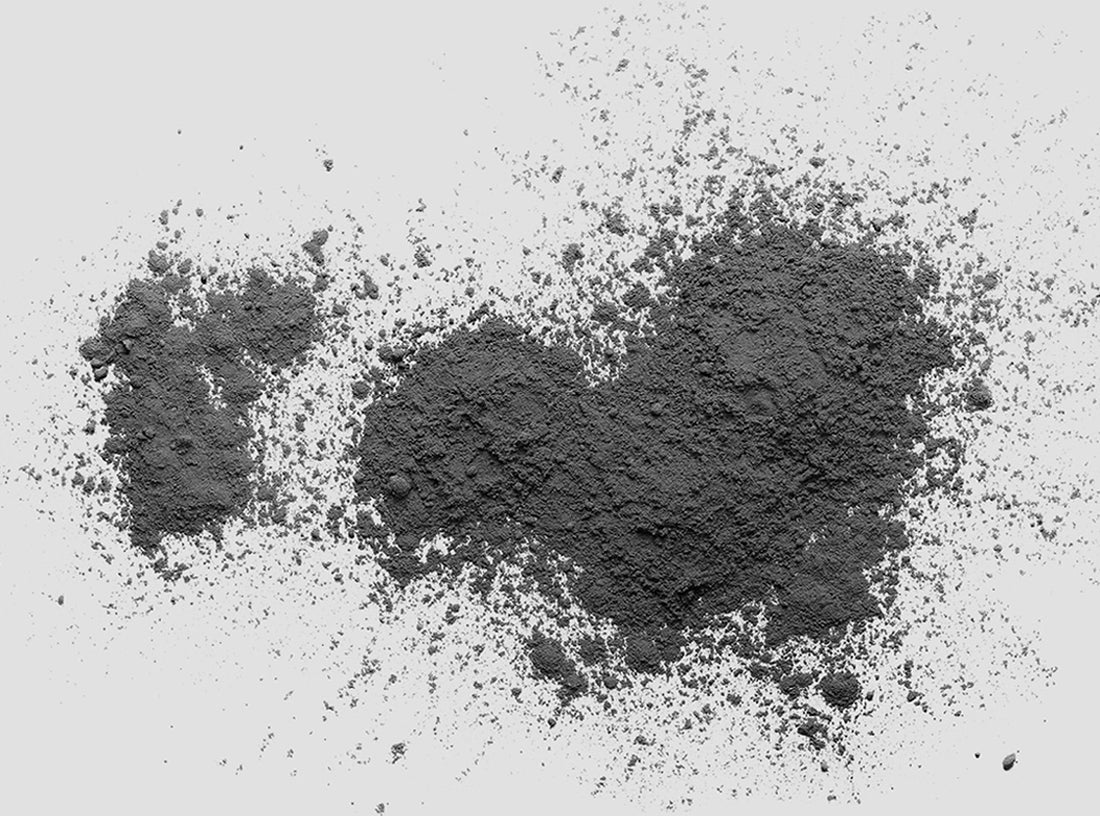
Iron absorption: How vitamin C aids in the process
Share
In this blog post, we'll take a closer look at why iron and vitamin C more specifically are so important for overall health, look at what iron absorption is, as well as discuss some ways that you can add them to your diet (such as through iron supplements).
What Happens If I Don't Get Enough Iron?
As we mentioned above, iron is a macronutrient that is needed to help the body function properly and is used to make hemoglobin (a protein that is found in red blood cells which helps to carry oxygen around the body) [i] [iii] [vi].
A lack of iron can lead to iron deficiency anaemia, which could result in tiredness, lack of energy, an irregular heartbeat and cause other issues to your health [ii] [iv].
How Much Iron Should You Take?
Iron is also used to create certain hormones in the body and there are different recommendations on the amount you should consume. How much iron you need to take and the tolerable upper intake level is based on various factors such as your age, sex and more [iii].
Your diet can also be a major factor in how much iron you need too. For instance, the National Institutes of Health state that people following a vegan diet will need almost twice the recommended dietary allowance of iron compared to those consuming iron from foods such as meat and fish.
This is due to the fact that nonheme iron that is found in plant-based food sources isn't absorbed by the body as well as heme iron which comes from animal-based foods [iii] [v].
What is Iron Absorption?
This brings us to the topic of iron absorption. So does vitamin c inhibit iron absorption? No, its actually the opposite.
In order for the body to produce haemoglobin, it must first absorb the iron from the intestinal cell, and as we just learnt, this isn't necessarily based on the amount of iron you consume, as this can be influenced by the source of iron too [iii] [i] [v] [vii].
There are other factors that may play a role in iron absorption, for instance, one piece of literature from 2016 indicates that calcium could inhibit the absorption rate of iron [vii].
The Benefits of Vitamin C and Ascorbic Acid
Vitamin C (which is also known as ascorbic acid) is important for a number of reasons in the body. Studies have indicated that vitamin C can aid bone health, can contribute to the normal function of the immune system, aid wound healing and protect the teeth [viii] [ix].
Other studies also indicate that vitamin C may also contribute to the reduction of stress, put you at a lower risk of strokes, decrease the complications that can sometimes come with colds, may also help to prevent the skin from ageing and much more [ix].
How Does Vitamin C or Ascorbic Acid Speed Up Absorption?
Vitamin C has also been shown to aid iron absorption [x] [xi]. This could be to do with two factors; how it prevents the formation of insoluble/unabsorbed iron compounds and how it may reduce ferric to ferrous iron [xii].
What Foods Provide Vitamin C (Other Than Just Citrus Fruits)?
So, how can you make sure you're getting enough vitamin C in your diet? The two best ways are through plant foods and the supplementation of vitamins. Foods rich in vitamin C include:
- Tomatoes
- Broccoli
- Bell peppers
- Strawberries
- Leafy greens
- White potatoes
- And of course, many more, including citrus fruits

Vitamin C Supplements
You can also incorporate vitamin C supplements into your diet as well as consume foods such as citrus fruits too. At Nourished we have made this simple and easy through our innovative technology that packs 7 active ingredients into a single gummy stack (including vitamin C).
You can create your own stack from our lab here.
What Foods Provide Iron?
As we mentioned earlier in this blog post, iron can be added to your diet through plant foods and meat/fish (but like vitamin C, this can also be added through the supplementation of vitamins too).
Foods that contain good sources of iron include the following:
- Red meat
- Dried fruit
- Beans, e.g. red kidney beans, edamame beans and chickpeas
- Nuts
- Fortified breakfast cereals
- Soybean flour
- Lentils
- Spinach
Iron Supplements
If you are looking for iron gummies in the US, then this can also be added to your own Nourished stack through our lab or our personalised quiz.
You can view all of the 34 Nourishments that you can add to your own gummy stack on the link here.
How to Get Your Own Vitamin C and Iron Gummies at Nourished?
Whether you are looking for ways to boost iron, add more vitamin C to your diet, or if you are looking to increase the efficiency that iron is absorbed, these powerful ingredients can be added to your own personalised, freshly 3D-printed gummies today here at Nourished!
To add vitamin C and iron to your personalised gummy, simply take our quiz or learn more about this multifunctional, game-changing iron gummies here.
Gummies vs Tablets
Gummies are chewable, and easier to consume, and studies have shown that gummy form can lead to higher absorption of certain ingredients.
Want to Learn More About Vitamin D and Iron?
To find out more research about vitamin C and iron, visit the studies listed below for additional information regarding this nourishment or visit the research page here:
[i] https://www.nhs.uk/conditions/vitamins-and-minerals/iron/
[ii] https://www.nhs.uk/conditions/iron-deficiency-anaemia/
[iii] https://ods.od.nih.gov/factsheets/Iron-Consumer/
[iv] https://pubmed.ncbi.nlm.nih.gov/15726599/
[v] https://pubmed.ncbi.nlm.nih.gov/10479197/
[vi] https://ods.od.nih.gov/pdf/factsheets/Iron-Consumer.pdf
[vii] https://www.sciencedirect.com/topics/agricultural-and-biological-sciences/iron-absorption
[viii] https://pubmed.ncbi.nlm.nih.gov/20617290/
[ix] https://www.webmd.com/diet/features/the-benefits-of-vitamin-c
[x] https://pubmed.ncbi.nlm.nih.gov/20200263/
[xi] https://pubmed.ncbi.nlm.nih.gov/10799377/
[xii] https://pubmed.ncbi.nlm.nih.gov/2507689/
[xiii] https://www.nhs.uk/conditions/vitamins-and-minerals/iron/